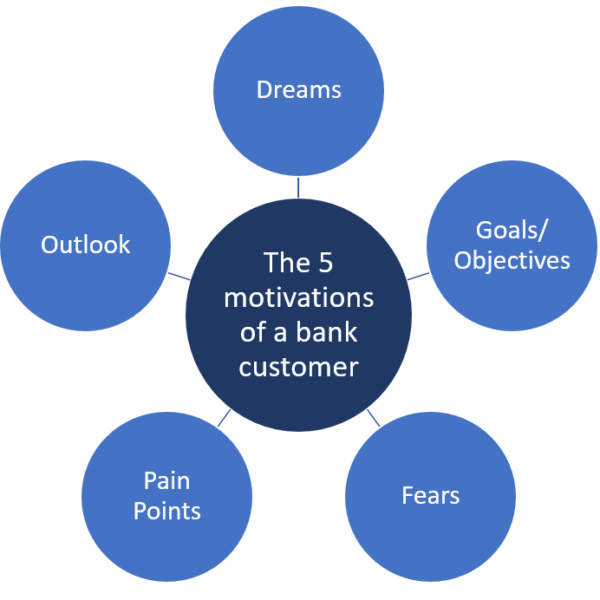Your Bank Doesn’t Know Your Customer Unless It Knows These 5 Things
There are a handful of banks in this nation that really know their small business or commercial customer. They say they are about service and they actually walk the walk. They deliver superior service compared to the competition and they put the customer in the middle of everything they do. We interviewed five of these top-performing banks and found out that they all have one thing in common – they tend to ask, discuss, understand and commit to their customer relationship management system at least three out of five of these questions. These questions should not only be part of your initial consultation but should be part of your bank’s annual review with the customer. In this manner, you can not only update your CRM system but more importantly, you can consistently review their progress and see if your bank’s capabilities have grown to better serve your customer.
Here are five questions that if you know and internalize the answers will force your bank to deliver truly exceptional service.
What Are Their Dreams?
A customer’s dreams aren’t always about growth and revenue generation. Often times they can be about achieving more time with the family, achieving a certain status, or creating a legacy. No matter what they are, seeing their big picture will help you reverse engineer how you and your bank can help get them there. While it seems simple, it is amazing how often this question is overlooked by bank relationship managers or business development officers.
What Are Their Goals/Objectives?
Where dreams are big, strategic items, goals, and objectives are tactical and have a shorter time frame attached to them. Here, bank calling officers should understand what the customer’s objectives are for the next one to three years.
What Are Their Fears?
Fears are not only the answer to the question, “What keeps you up at night?” but are the obstacles that could prevent your customer from achieving his or her dreams and goals. Keep in mind that these might be concrete fears such as the fear of an impending recession or they may be completely psychological like the inability to execute on their plan. It doesn’t really matter because both are real to them. These fears may be little or big, but without knowing their fears you will not be able to know their concerns, not know how to truly help the customer, not know how to position the bank’s products and services, and not know how to prioritize your help.

What Are Their Pain Points?
Different than fears, pain points are those places of friction that cause problems. Discussing their fears first will often lead to a discussion about pain points, but like fears, these pain points may be minor or major. Maybe it is their commute time or maybe it is a troublesome business partner, but knowing a person’s pain points places you and your bank in a position to deliver life-changing service. You might not be able to directly help them achieve their dreams, but chances are you can help remove one or two pain points.
What Is Their View of Their Corporate / Industry / Economic Outlook?
While chances are your bank currently discusses the customer’s annual budget or forecast, it is rare that a bank takes the time to understand the underlying assumptions. In particular, knowing their view of their household, company, industry and the economy is extremely helpful in order to help them mitigate some of their fears and pain points. Understanding their outlook, product selection, loan structuring, and setting risk tolerance levels provides bankers a basis for understanding both the customer’s view but provides more information about why they make the decisions they do. Ask the question, have a discussion, give input, validate and record the conversation and you are well on your way to really knowing your customer.
The Three Benefits of These Questions
While it is clear that garnering this information from your customers will help your bank better deliver superior service there is a more nuanced reason for asking these questions.
These questions do three things for your bank. One, it puts your calling officers in the mindset that it is not about their goals, but about the customer’s objectives. By focusing on these critical questions, it puts the banker on the path of becoming a trusted financial advisor and helps create a partnership of shared knowledge. It reminds the banker that part of their job is to help the customer grow and achieve their dreams. It underscores the fact that to be successful, the banker needs not only the emotional intelligence to help support a customer’s goals but the practical tools to help them achieve their objectives.
The second thing these questions help with is to assist your customer to clearer thinking. Chances are they rarely get ask these questions which means many will not have the answers readily available. Making customers think through the answers forces them to figure out what is important and helps them prioritize their desires. Helping your customers come up with these answers is a huge service in itself and will likely result in a more successful client.
The third thing these questions do is align the bank objectives with the objectives of the customer. By knowing a customer’s answers, bankers now help the customer achieve them. The answers to these questions will drive other conversations and will lead to the positioning of the product, services, networking, and other assistance. It allows the bank to help the customer think about their business in new ways. The banker can now be on the lookout for ways to offer assistance which might mean passing along a simple piece of content via text or might mean helping that client with an introduction to their Congressional leadership.
These questions, and their answers, are so important, we believe in building your customer relationship management (CRM) system around them to allow for the updating and archival of both the customer’s answers and the relationship manager’s notes and/or the course of action.
If you are looking to truly delivering exceptional service and value, knowing this level of information about your customer will help your bank, your customers, and your employees all operate at a higher level versus the competition.

